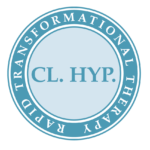
Chapter 1. Baby steps
We tend to remember significant events in our lives as we attach meaning and emotional value to them, be it joyful or sad. In fact every major happening in our life makes an impact and builds itself into a memory: our first day in school, the birth of a child, the loss of someone we love, the day we graduate/get married/divorced/get a promotion/run a marathon or get plastic surgery, join a challenge to Santiago de Compostella, adopt a tree or write a book, buy the car we've always wanted or come up with a real joke that makes people laugh and subsequently quote us, or any other major endeavour in our modern life. We tend to remember events because they have made their mark on us.
What if I asked you to please remember the day you first laughed out loud? The very first day in your life when something amused you so much that you burst out laughing? That must have been an extraordinary event, an extraordinary first time, right?
Or the very first time you were in tears?
Or when was the first time you started intently focusing on an object or a person, with your eyes? That's a big one! When did you willingly start observing and getting to know this world? How come you cannot remember this one? The conscious beginning of your big journey on this planet? The moment you started learning?
When we are born, our brains are fully formed and functional, with the exception of a small area called the hypo campus, which is basically where long term memories are stored all along our lives. The hyppocampus is still under construction until around the age of 7 or 8. That is why until then, most of our memories get stored there in a rather disorganised and random way. We just throw memories in and they fall and land wherever they find some free space. The hyppocampus in the brain of a baby looks like a vault without partitions, without drawers or boxes. Imagine a huge store like IKEA without the IKEA system of classifying/storing/identifying/retrieving/ parts, millions of parts, of all sizes, shapes and volumes, colours and textures, without a storage or an organising solution system. Every piece of furniture or textile, kitchen ware, in fact every little or big thing that you normally see nicely arranged on a shelf in an IKEA store is thrown in that huge empty space . Crazy, eh? Go find your nice yellow armchair in there, you can't miss it, it's bright yellow! Go find your desk, or the last breakfast bowls you bought last time! I have, for the sake of making a point, oversimplified things, I admit.
The hyppocampus and its whole filing system take years to develop. That is why most of the stuff that went into the vault, while the system was not in place and fully operational, "gets lost". Actually they are not lost, they are hidden behind/under/among/at the back of other things that we throw down there while our little wonderful brain is so busy building rows and storage space. And while the system is being built, it can only take in and properly store things that get there after the rows and partitions are in place. It cannot apply in retrospect. It cannot work for stuff thrown there in the past. This is why you and I cannot remember such a wondrous sensation like laughing out loud for the first time in our lives.
Past. The past. A noun and the tense of a verb. A way to sort out time. A source of nostalgic reveries or remorse or endearing tribulation, the past is one of the very few things that a small child cannot possibly imagine. And this goes hand in hand with the storage system so brutally described above. Because until the rows and partitions are in place, time is simply an endless now for a child. Your child does not understand time the way you do, dear parent (to be). For him, everything is covered, included, cloaked and identified by an all encompassing present.
"Are we there yet?", a well known line in the movie"Shrek" is the best example of how a child views time. We all have funny stories about kids learning that " after one more afternoon nap and one more night's sleep" we go to the movies. And still, when you think that you've just done a brilliant job by explaining this, you might be faced with the wonderful question: "Mom, is now tomorrow?" The stories are funny for adults but they can be extremely frustrating for a child who cannot grasp anything more than the "present continuous" representation of life.
Which brings us to yet another particular way in which small children view time, the only time they know: this present continuous is permanent. Quite logical in fact. If they cannot conceptually figure out the past or the future, how else can they perceive time other than always in the present?
Remember the utter disbelief on the face of a child when she or he sees photos of the parents as small children? Or grandparents as children? "Mum.... a little girl??? That is not possible. Mum is mum. I am the little girl".
"When you're an adult, you will understand" is one of the most idiotic sentences an adult can tell to a 2 or 3 years old. "Who? Me? An adult? I am a child". By the time a child is 5 or 6, he has managed to grasp some elements of time: he sees he has outgrown his baby clothes and he actually begins to remember instances when he was smaller, in a stroller or wearing something that no longer fits him, because he sees other children, smaller than him in the park or in daycare. The rows and partitions and boxes are beginning to operate. That is usually when children can be introduced to understanding time as they start to learn the hours.
Dear parents, never underestimate the absolutely tremendous effort a small child does as he learns how the world around him works. Every single day in the life of a small child before school years is a day of mind-boggling discoveries, endeavours and lessons, that all get imprinted and stored in the vault, whether you, as adults, want it or not. A small child's memory might not know the sequence of tenses, but it retains everything, like a sponge. Any event is absorbed and stored according to the one and only criteria available to a child: the interpretation he or she decides to give to that particular event. A child is pure emotion and so is the imprint: powerful and long lasting. A child does not have the logic, experience, knowledge and what have you, to analyse, dismiss, include, judge, decide. His emotions are the main tool and the common denominator. (And as we are to find out later on, emotion almost always beats logic. But we'll deal with this conundrum later on.)
It might come as an abrupt end of this chapter and equally a shock to you, or not, but by the time you are 5 years old, dear-adults-reading-this-now, you will have learned about half of the things you are going to learn for the rest of your life.
Ponder that.
to be dearly continued.




Speechless,wonderful, powerful and so very true. Can’t wait to read more.